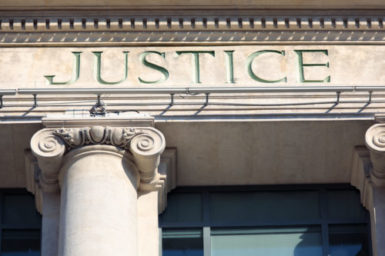The Noahide Commandment for Courts of Law
Rabbi Moshe Weiner is the author of Sheva Mitzvot HaShem and The Divine Code, and the overseeing Rabbi for AskNoah. In this video, he explains the Torah-based principles for Gentile courts.
Rabbi Weiner answers the following questions
1. What is the scope of G-d’s commandment for Judgments (“Dinim” in Hebrew) for Gentiles?
2. The basic Torah laws of the Seven Commandments for Gentiles as compiled by Maimonides (RambaM), in Laws of Kings. chapter 9. The opinion of Nachmanides (RambaN) differs in regard to Dinim. How do their opinions overlap and how do they differ, and what is the majority/practical opinion to follow?
3. What is the concept of a Noahide-observant court (following G-d’s “fixed laws”) reverting to judge as a secular court (following the society’s “resolved laws”)? What are the differences between those two systems?
4. Under what conditions is a Gentile court permitted to function according to Torah-based parameters? This includes the requirement for Noahide-observant courts to be authorized by a Noahide-observant government and society.
5. What is the halachic (Torah-law) status of modern-day courts in the Gentile nations? In what respects do they fulfill G-d’s commandment for Dinim?
6. What is G-d’s judgment on Gentile judges and witnesses in secular courts who take bribes or otherwise pervert justice?
7. Under what conditions are Gentile courts fully justified within halacha to utilize judges and/or witnesses who don’t fulfill the requirements for Noahide-observant courts, or to use time in prison or fines, etc., as punishments for violations of the Seven Commandments?
8. What is the Torah-based view of secular courts that claim authority over independent nations, to hold them liable for man-made “international laws”?
9. How do Gentile courts help their nations to fulfill G-d’s directive (Isaiah 45:18) – “For so said the L-rd, the Creator of Heaven, Who is G-d, Who formed the Earth and made it – He established it; He did not create it for a waste, He formed it to be inhabited – ‘I am the L-rd and there is no other.’ ”

More information on the commandment to establish laws and courts
The Divine Code, Part VIII, ch. 1: The Obligation for a Judicial System
The Command to Establish Just Laws and Courts








